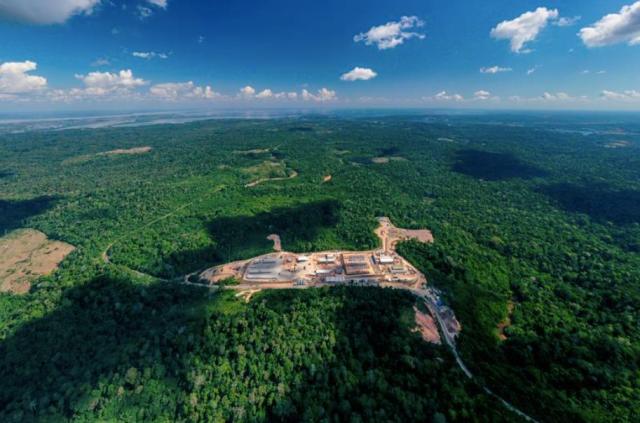363 #ClimateAction #Amazon #Petition #350
[1]Apart from all the usual existential threats to "the lungs of the world" * there is a new very dangerous threat: drilling for natural gas. They call it clean, and they are partly right. A natural gas plant is cleanER than a coal plant. But it's still burning dino's and producing CO2.
There is an added danger to it, though: searching for and drilling for LNG and the transport causes massive leakage of methane. A gas that's almost 6 times more devastating to the climate than CO2. Directly and very much worse for the vast and diverse ecosystem of a rainforest
Changes in the energy market made searching and drilling for LNG much more profitable, and propagating LNG as "clean[er]" makes investing even more profitable.
About the petition:
STOP FUNDING AMAZON DESTRUCTION
#Citibank, #JPMorganChase, #ItaúUnibanco, #Santander, #BankOfAmerica and #HSBC have poured at least USD $20 billion into fossil fuel projects in the Amazon. These six banks alone are behind half of all the funding towards destructive oil and gas exploration in the rainforest.
They have promised to take action for the climate, preserve biodiversity and protect human rights. But in reality, their money is the driving force behind the destruction.
They are funding drilling which is threatening to turn the Amazon into a dry savannah. Their money is behind the threats faced by Indigenous and traditional communities there.
We cannot accept that these banks profit from claiming to be sustainable but do the opposite.
Sign the petition to demand they end investments in oil and gas exploration in the Amazon.
act.350.org/go/419209?t=8&akid…
For the full petition text see:
363 #ClimateAction #Amazon #Petition #350
[2]* has it occured to you that 'we' don't name the Amazon like that since decades?

An Amazon free from oil and gas
Out of the more than $20 billion invested, 46% of all direct financing for oil and gas exploration in the Amazon comes from just six banks: Citibank, JPMorgan Chase, Itaú Unibanco, Santander, Bank of America, and HSBC.act.350.org
Lo, thar be cookies on this site to keep track of your login. By clicking 'okay', you are CONSENTING to this.
JdeB [216.91 ppm]
Unknown parent • • •Maybe that's where capitalist financing has gone wrong. Buying shares used to be partaking in the risk of an enterprise, but it shifted to being safe like a bank. The real risks are now taken in speculating on a non-tangible economic values.